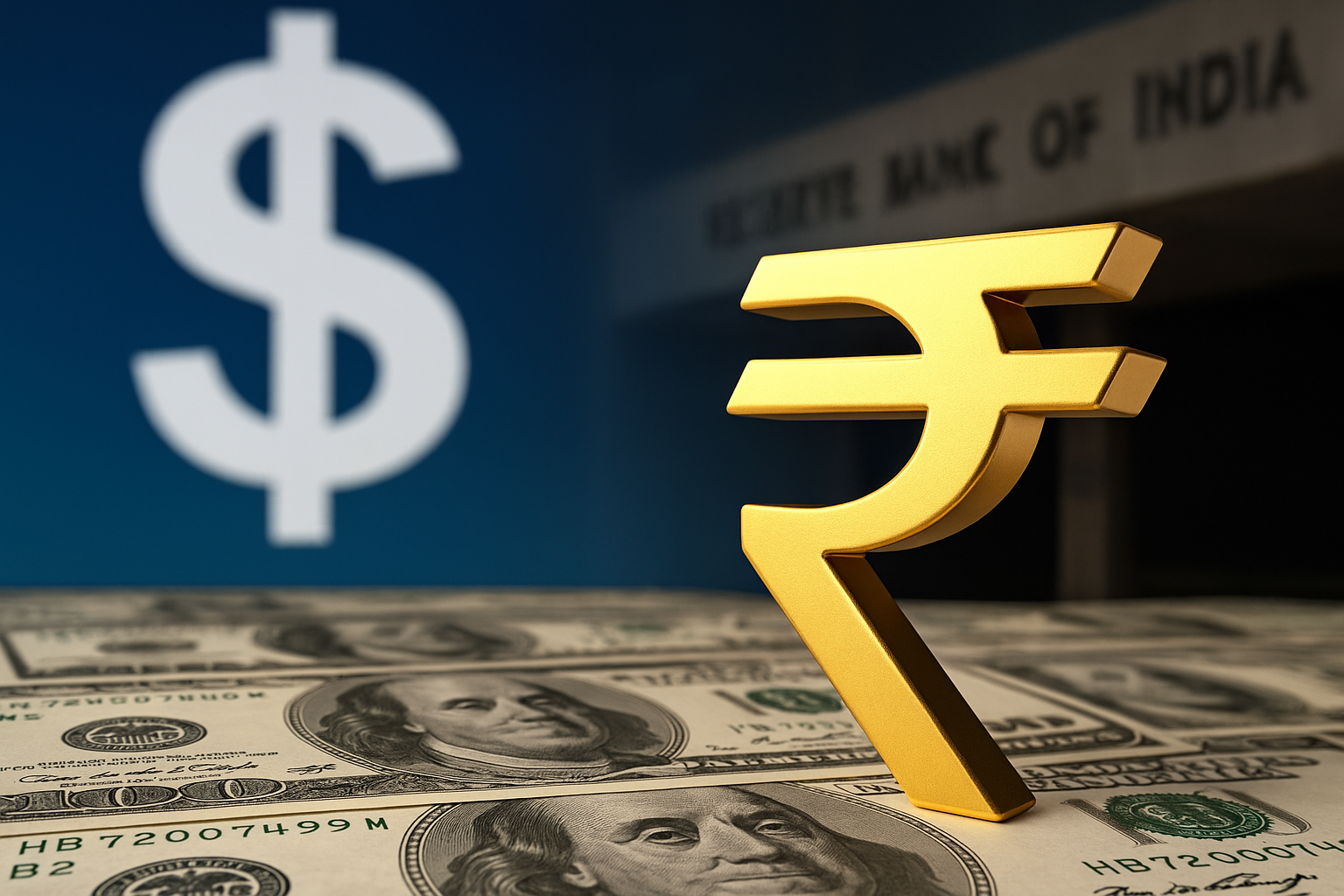Indian Rupee Crashes to Record Low as U.S. Tariffs Hammer Markets and RBI Intervenes
By Tredu.com • 8/29/2025
Tredu

Rupee Hits Historic Low
The Indian rupee crashed to an all-time low of ₹88.10 per U.S. dollar on Friday, hammered by the impact of new U.S. tariffs and heavy investor outflows. The drop marks the weakest level in the currency’s history, underscoring the strain facing Asia’s third-largest economy as geopolitical and trade shocks converge.
The slump followed Washington’s decision to double tariffs on Indian-origin goods to 50%, a move that economists warn could shave nearly 0.8 percentage points off India’s annual GDP growth.
RBI Steps In
Traders reported that the Reserve Bank of India (RBI) intervened heavily to stabilize the currency, with state-run banks selling dollars on its behalf. The central bank was seen defending the ₹88.00–₹88.20 range, attempting to prevent further panic.
Despite its efforts, the rupee closed at ₹88.10 per dollar, cementing a record low and highlighting the magnitude of external pressure on India’s financial system.
Equity and Bond Outflows
The tariff shock also rattled Indian equities. The Nifty 50 slipped 0.6% while the Sensex shed 0.5%, reflecting broad-based weakness across export-oriented sectors. Foreign investors pulled money from both equities and bonds, intensifying the rupee’s slide.
Bond yields ticked higher as traders priced in the likelihood of increased government borrowing to cushion the economic blow from tariffs.
Trade Balance and Competitiveness
The rupee’s plunge may provide a narrow competitiveness boost against rivals like the Chinese yuan, where it also touched a record low of 12.33. However, analysts caution that any advantage is blunted by punitive U.S. tariffs on Indian exports, especially textiles, IT services, and engineering goods.
“This is a double shock—India’s products are less competitive in the U.S. because of tariffs, and the rupee’s weakness raises import costs across energy and electronics,” said one Mumbai-based economist.
Inflation Concerns Rise
The record fall raises the risk of imported inflation, particularly in crude oil and consumer electronics—two categories where India is heavily reliant on imports. A weaker currency makes these goods more expensive, threatening to feed through to consumer prices.
For the RBI, the dilemma is acute: defending the rupee requires draining foreign reserves, while supporting growth demands looser financial conditions. The balance may prove difficult to maintain if volatility persists.
Political and Market Fallout
The rupee’s record low comes at a politically charged moment. Opposition leaders have seized on the plunge as evidence of economic mismanagement, while industry bodies are lobbying for immediate government relief.
Global markets are also watching closely. Emerging-market peers weakened in sympathy, but the rupee’s 88.10 level stood out as the worst-performing in Asia.
Outlook
Most analysts expect the rupee to remain under strain in the short term, with the possibility of testing fresh lows if the U.S. and India fail to de-escalate trade tensions. Much will depend on the RBI’s willingness to use reserves and New Delhi’s ability to negotiate tariff relief with Washington.
For now, the rupee’s collapse to ₹88.10 per dollar is a stark reminder of how vulnerable India remains to external shocks—even as it seeks to position itself as a global growth engine.
The Bottom Line
The Indian rupee’s crash to a record ₹88.10 per dollar underscores the economic damage of U.S. tariffs, investor outflows, and fragile confidence. With the RBI intervening and policymakers scrambling, India faces its toughest currency test in years as markets brace for more turbulence.

How to Trade Like a Pro
Unlock the secrets of professional trading with our comprehensive guide. Discover proven strategies, risk management techniques, and market insights that will help you navigate the financial markets confidently and successfully.


